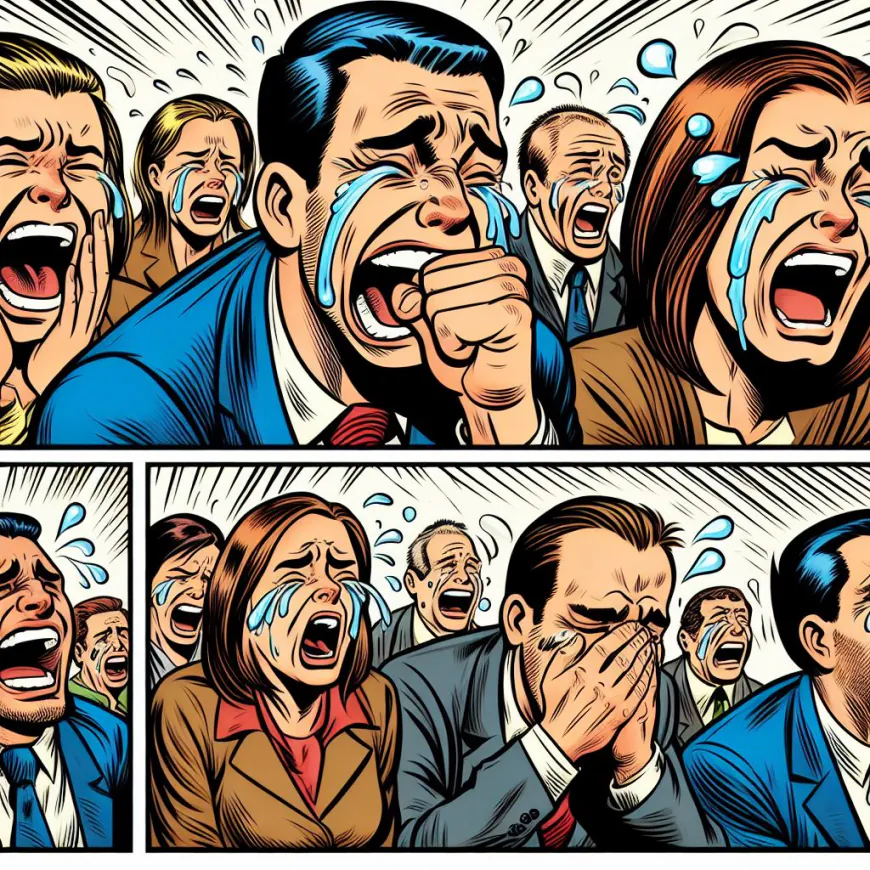Why Do We Sometimes Laugh in Wrong Situations? Like Condolences for Example?
Navigating Emotions Why We Laugh at the Wrong Times

Why Do We Sometimes Laugh in Wrong Situations?
Understanding the Quirks of Human Emotions
Introduction
Laughter is a universal human experience. It brings joy, lightens our hearts, and connects us with others. But what happens when laughter emerges unexpectedly, even in situations that seem entirely inappropriate? Why do we sometimes find ourselves chuckling during solemn moments, like condolences or serious discussions? Let’s explore the science behind this intriguing phenomenon.
1. The Clash of Emotions
Our emotional landscape is complex. Often, our feelings don’t neatly fit into predefined categories. Imagine attending a funeral—a somber occasion where grief and sadness prevail. Suddenly, you find yourself suppressing a giggle. It feels wrong, but it happens. Why?
Researchers from Yale University have shed light on this. They discovered that clashing emotions can occur in response to dramatic external stimuli or any signal outside of our bodies that provokes a reaction. When faced with intense emotions—whether sadness, anxiety, or fear—our brain sometimes misfires, leading to unexpected laughter.
2. The Role of Emotion Regulation
Inappropriate laughter isn’t a sign of callousness; rather, it’s a form of emotion regulation. Our brains strive to maintain equilibrium, even when faced with conflicting feelings. When sadness overwhelms us, our brain might activate laughter as a coping mechanism. It’s as if our emotional circuitry gets crossed, resulting in an odd blend of sorrow and mirth.
3. Social Awkwardness and Nervous Energy
Picture this: You’re at a memorial service, surrounded by grieving friends and family. Suddenly, a humorous memory of the departed person flashes in your mind. You suppress a snicker, feeling both guilty and bewildered. Why? Social norms dictate that funerals are solemn affairs, yet our nervous energy sometimes overrides these norms.
4. The “Holy Shit” Moment
Remember my friend Fizza? She laughed uncontrollably when I shared news of my cousin’s miscarriage. It shocked me initially, but then I joined in. Fizza’s laughter wasn’t heartless; it was her brain’s way of coping with the gravity of the situation. Similarly, when she heard about my mom’s patient passing away, her awkward laughter emerged again. It was a mix of shock, discomfort, and social confusion.
5. Coping Mechanisms and Connection
Inappropriately timed laughter doesn’t mean we lack empathy. Quite the opposite—it’s our brain’s attempt to navigate emotional minefields. By laughing, we release tension, connect with others, and cope with overwhelming feelings. It’s a paradoxical dance between our heartache and our need for relief.
Conclusion
Next time you find yourself giggling during a serious moment, remember that you’re not alone. Our brains are intricate, and sometimes they surprise us. So, embrace the quirks of human emotions, share a compassionate smile, and know that laughter—even in the darkest times—binds us together.
And there you have it—a unique exploration of why we sometimes laugh when we least expect it.
What's Your Reaction?








































